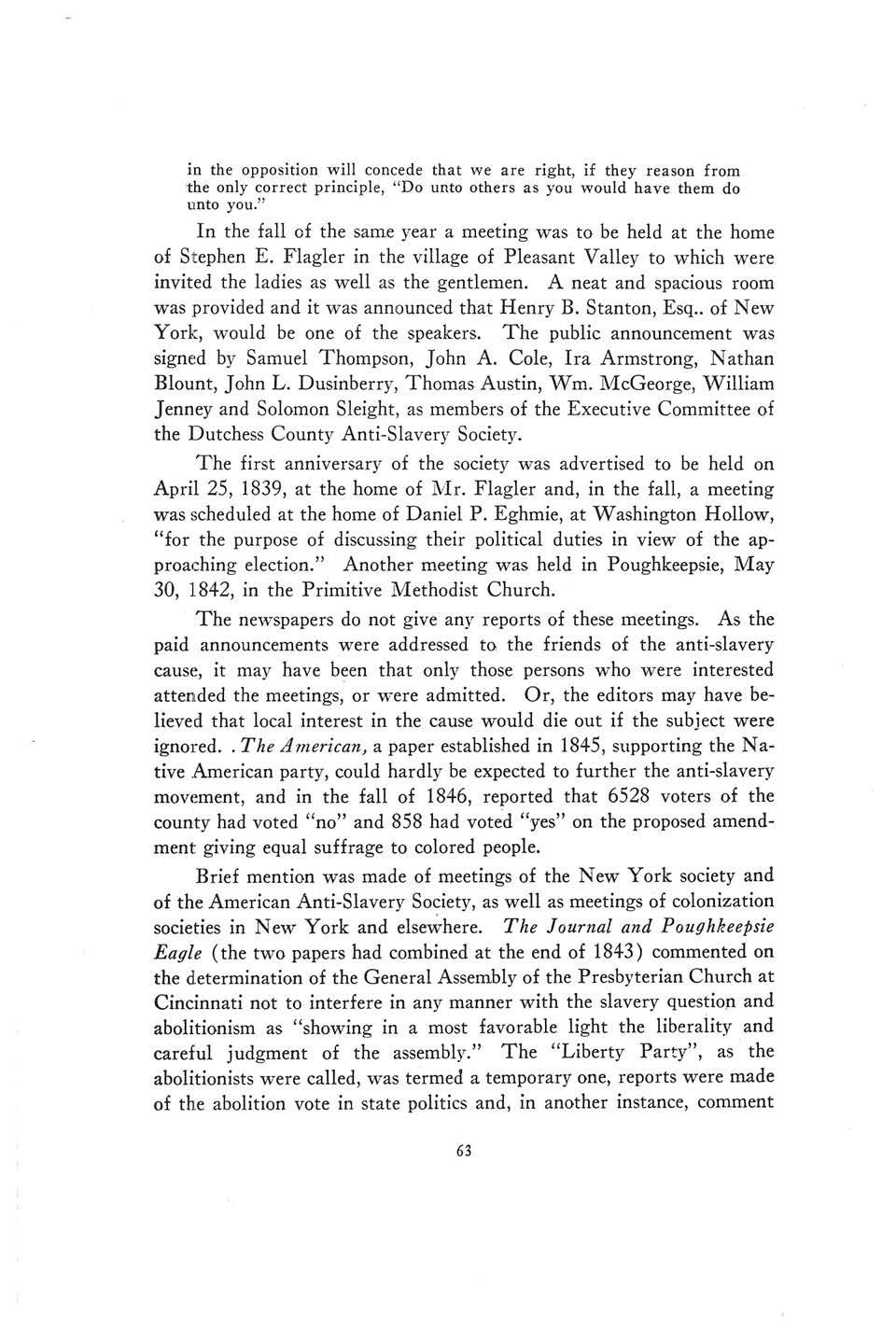in the opposition will concede that we are right, if they reason from the only correct principle, "Do unto others as you would have them do unto you."
In the fall of the same year a meeting was to be held at the home of Stephen E. Flagler in the village of Pleasant Valley to which were invited the ladies as well as the gentlemen. A neat and spacious room was provided and it was announced that Henry B. Stanton, Esq.. of New York, would be one of the speakers. The public announcement was signed by Samuel Thompson, John A. Cole, Ira Armstrong, Nathan Blount, John L. Dusinberry, Thomas Austin, Wm. McGeorge, William Jenney and Solomon Sleight, as members of the Executive Committee of the Dutchess County Anti-Slavery Society. The first anniversary of the society was advertised to be held on April 25, 1839, at the home of Mr. Flagler and, in the fall, a meeting was scheduled at the home of Daniel P. Eghmie, at Washington Hollow, "for the purpose of discussing their political duties in view of the approaching election." Another meeting was held in Poughkeepsie, May 30, 1842, in the Primitive Methodist Church. The newspapers do not give any reports of these meetings. As the paid announcements were addressed to the friends of the anti-slavery cause, it may have been that only those persons who were interested attended the meetings, or were admitted. Or, the editors may have believed that local interest in the cause would die out if the subject were ignored. . The 21merican, a paper established in 1845, supporting the Native American party, could hardly be expected to further the anti-slavery movement, and in the fall of 1846, reported that 6528 voters of the county had voted "no" and 858 had voted "yes" on the proposed amendment giving equal suffrage to colored people. Brief mention was made of meetings of the New York society and of the American Anti-Slavery Society, as well as meetings of colonization societies in New York and elsewhere. The Journal and Poughkeepsie Eagle (the two papers had combined at the end of 1843) commented on the determination of the General Assembly of the Presbyterian Church at Cincinnati not to interfere in any manner with the slavery question and abolitionism as "showing in a most favorable light the liberality and careful judgment of the assembly." The "Liberty Party", as the abolitionists were called, was termed a temporary one, reports were made of the abolition vote in state politics and, in another instance, comment 63











